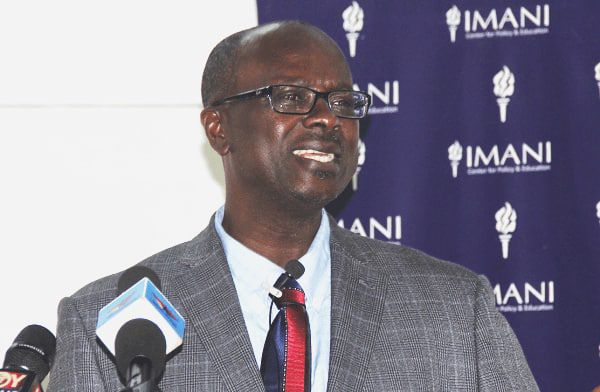The intricate web of alleged corruption surrounding Ghana’s National Signals Bureau (NSB) and the Ghana Water Company Limited (GWCL) has come under intense scrutiny, raising concerns about financial mismanagement and potential criminal conduct within state institutions. At the heart of the controversy is the alleged diversion of substantial public funds, amounting to GH¢1.3 million monthly, purportedly for secure internet services. This revelation, brought to light by Deputy Special Prosecutor Dr. Dominic Ayine, paints a picture of a sophisticated scheme involving former NSB Director-General Kwabena Adu Boahene and his associates. The alleged siphoning of funds, channelled through a private company, BNC Communications, owned by the accused, raises serious questions about accountability and oversight within these critical state-owned entities.
The alleged scheme spanned from 2020 to 2022, during which period GWCL consistently made monthly payments supposedly intended for the NSB. However, investigations by the Office of the Special Prosecutor (OSP) revealed that these payments bypassed the intended recipient and were instead directed to BNC Communications, a private entity linked to Adu Boahene. Dr. Ayine’s detailed account of the bi-weekly transfers of GH¢650,000 from GWCL’s account directly to BNC Communications paints a clear picture of a deliberate and systematic diversion of public funds. This apparent misuse of funds raises critical questions about the internal controls within GWCL and the mechanisms that allowed such significant sums to be diverted without detection over an extended period.
The implications of this alleged corruption extend beyond the immediate financial loss to the state. It erodes public trust in government institutions and raises concerns about the potential vulnerability of other public entities to similar schemes. The fact that these funds were purportedly intended for secure internet services, a crucial aspect of national security, adds another layer of complexity and concern. The potential compromise of sensitive information or infrastructure due to inadequate funding, resulting from this alleged diversion, raises serious national security implications that demand thorough investigation and appropriate action.
Legal scholar Professor Stephen Kwaku Asare, known as Kwaku Azar, has emphasized the need for a broader investigation that goes beyond identifying the recipients of the misappropriated funds. He argues that holding accountable those who authorized the payments within GWCL is equally crucial. Professor Asare’s call to “follow the water” underscores the importance of uncovering the entire network involved in the alleged scheme, including those within GWCL who may have facilitated or enabled the diversion of funds. This approach is vital to ensuring comprehensive accountability and preventing similar instances of financial mismanagement in the future.
The alleged involvement of Adu Boahene in this scheme comes as he faces separate charges in a $7 million scandal, further complicating his legal predicament. This separate case, in which he is being prosecuted alongside his wife, Angela Adjei Boateng, a former UNB Bank staff member, Mildred Donkor, and Advantage Solutions Ltd., highlights a pattern of alleged financial impropriety. The charges in this case, which include stealing, defrauding by false pretences, causing financial loss to the state, money laundering, and use of public office for profit, paint a picture of a complex web of alleged criminal activities. The confluence of these two cases raises serious questions about the integrity of the individuals involved and the potential systemic weaknesses within the institutions they represented.
The ongoing investigations and legal proceedings hold significant implications for Ghana’s fight against corruption. The outcome of these cases will not only determine the culpability of the individuals involved but also send a strong message about the government’s commitment to tackling corruption within its ranks. A thorough and transparent investigation, followed by appropriate legal action, is crucial to restoring public trust and ensuring accountability for the misuse of public funds. The focus should not only be on recovering the misappropriated funds but also on implementing robust mechanisms to prevent future occurrences of such financial mismanagement. The government must demonstrate its unwavering commitment to upholding the rule of law and safeguarding public resources.














